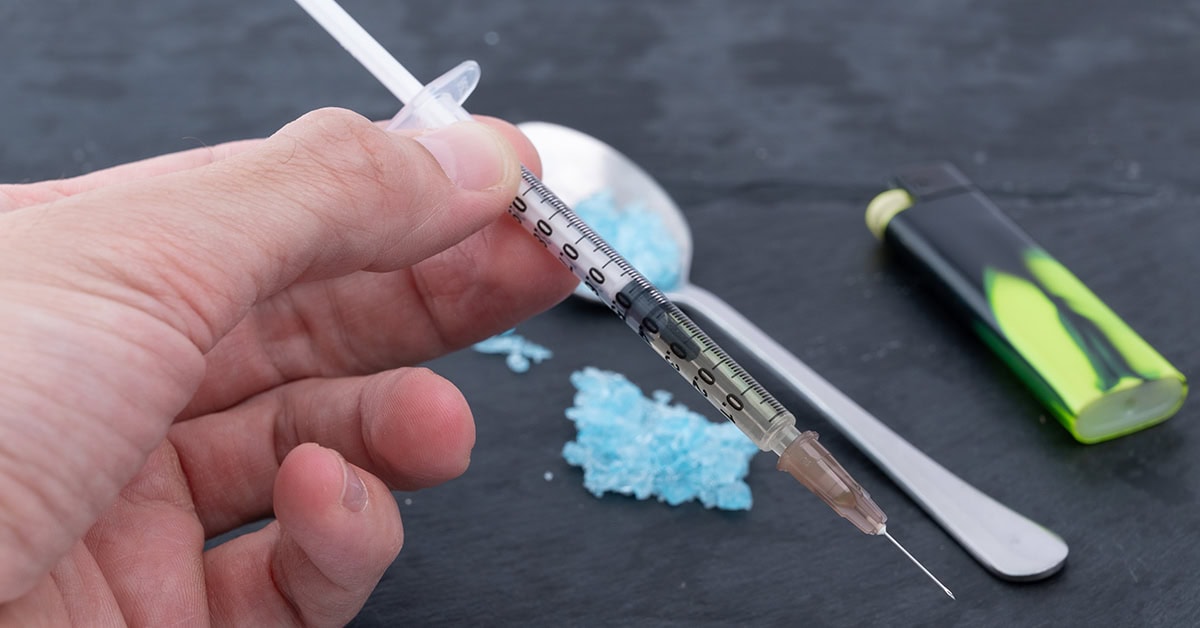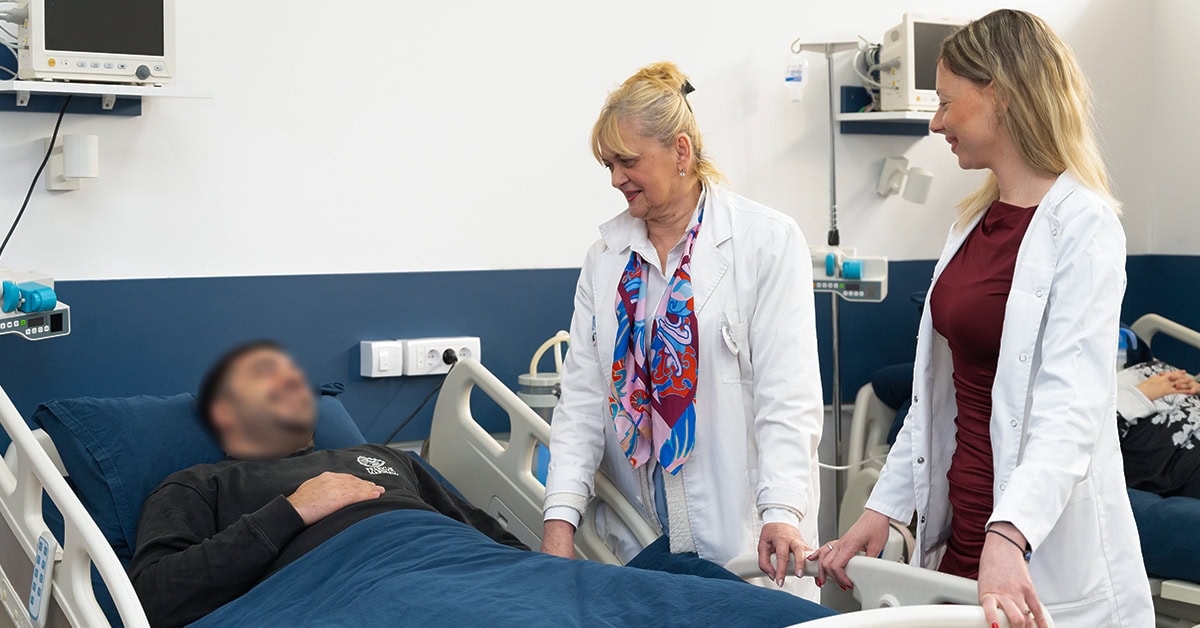Possibility of cost reimbursement through health insurance
Addiction to psychostimulants is a serious medical and psychological issue that requires a professional, comprehensive, and personalised treatment approach. Psychostimulants — such as amphetamines, methamphetamines, cocaine, and ecstasy — stimulate the central nervous system, creating an artificial sense of alertness, energy, and euphoria. Because of their powerful effects and the short-lived nature of the perceived “high”, these substances can rapidly lead to dependence.
At our specialised clinic, MedTiM, we provide comprehensive treatment for psychostimulant addiction. This includes medical detoxification, psychotherapy, post-discharge support, and ongoing patient monitoring. Our goal is not only to help patients stop using these substances, but to support them in breaking free from addictive behaviours entirely and building a stable, functional, and fulfilling life.
Whether the addiction involves amphetamines, ecstasy, cocaine, or synthetic stimulants, every patient at MedTiM Clinic receives an individualised treatment plan tailored to their physical and psychological condition.

Due to their short-term ability to enhance concentration and reduce fatigue, psychostimulants are often misused in academic and professional settings, as well as for recreational purposes – most commonly during nights out or situations involving intense mental exertion.
Although some psychostimulants are used for medical purposes (e.g. in the treatment of Attention Deficit Hyperactivity Disorder – ADHD), unregulated use can quickly lead to addiction. The body builds tolerance, meaning increasingly larger doses are required to achieve the same effect, while serious mental and physical health consequences develop simultaneously.
Precisely for this reason, the treatment of psychostimulant addiction must involve a systematic approach that includes medical detoxification, psychological support, and professional supervision within a specialised facility.
In the early stages, the use of psychostimulants is often associated with subjectively pleasant sensations – users report increased energy, elevated mood, and a heightened sense of control. However, these effects are short-lived, while the long-term consequences of psychostimulant use can be serious and detrimental to health.
Long-term and uncontrolled use of these substances depletes the body, disrupts the brain’s biochemical balance, and leads to the development of severe physical and psychological dependence on psychostimulants. In some cases, a condition known as “brain burnout” occurs, where the nervous system can no longer function without the presence of a stimulant.
This is why timely treatment is crucial.

Usmerite svoj život na pravi put
Pozovite nas i zakažite razgovor sa našim lekarima
Addiction to psychostimulants develops gradually but extremely quickly compared to many other psychoactive substances. What makes this type of addiction particularly risky is that many users initially fail to recognise the problem, as the feelings of increased efficiency, energy, and alertness are perceived as “positive effects” rather than dangerous manipulations of the brain’s chemical balance.
Addiction is not a weakness of will; it is a complex disorder that requires both medical and psychological treatment. Timely diagnosis and professional help are key factors in ensuring successful recovery.
Recognising the symptoms of psychostimulant addiction at an early stage is crucial for timely intervention and preventing serious consequences for a person’s health and overall well-being. These symptoms can be divided into psychological, physical, and behavioural categories, and in most cases, a combination of all three will be present.
If you recognise several of these symptoms in yourself or a close person, there is a high likelihood that it is an addiction to psychostimulants. Such situations do not resolve on their own – professional help is essential and should be sought from a specialised treatment facility.

The treatment of addiction to psychostimulants at MedTiM Clinic follows clearly defined and medically supported stages, designed to ensure both physical withdrawal and psychological stabilization. These stages aim to reintegrate the patient into their daily life in a healthy and sustainable manner.
The treatment process begins with a thorough diagnostic evaluation. Using laboratory results, psychiatric and psychological assessments, and in-depth consultations with the patient, our team of experts determines:
This comprehensive assessment forms the basis for creating a personalised therapy plan tailored to the individual’s needs.
Medical detoxification is the crucial first phase in physically cleansing the body of toxins and psychostimulant substances. During this stage:
Detoxification typically lasts between 14 and 21 days, depending on the severity of the addiction and the patient’s overall health condition.
The final stage of treatment at the MedTiM clinic focuses on preserving long-term recovery and preventing relapse into addictive behaviours. This phase begins once detoxification and psychotherapy have been successfully completed, and the patient is stable and ready to resume life outside the clinic.
Our ultimate goal is not just to help the patient stop using substances, but to support them in adopting a stable, healthy lifestyle—free from addiction, grounded in self-awareness, clear boundaries, and strong support mechanisms.
Effective treatment of psychostimulant addiction requires a combination of therapeutic methods that work together and are tailored to each individual patient. At the MedTiM clinic, we use an integrative approach designed to address not only physical and psychological dependence, but also to support improved social functioning.
All medications are prescribed solely by a specialist and administered under continuous supervision in a controlled clinical environment.
Psychotherapy plays a crucial role in uncovering the deeper psychological mechanisms that contribute to the development of addiction, as well as in building healthy behavioural patterns that support long-term abstinence. At the MedTiM clinic, we use modern, evidence-based therapeutic approaches that have proven highly effective in the treatment of psychostimulant addiction.
Cognitive Behavioural Therapy (CBT)
Motivational Interviewing Therapy
This form of therapy focuses on strengthening internal motivation for change and is especially helpful for patients who are unsure about starting treatment or fear life without the substance. During the process:
Individual Psychotherapy
Working one-on-one with a psychotherapist allows for intensive and confidential exploration of personal issues, trauma, and emotional conflicts that may have contributed to the development of addiction. In a safe and supportive environment, the patient:
3. Psychoeducation
4. Psychosocial support and reintegration
At the MedTiM clinic, the treatment of addiction to psychostimulants is carried out exclusively through inpatient care, as it is the most effective and safest method to completely free the patient from addiction and achieve stable, long-term abstinence.
During inpatient treatment, the patient stays in the clinic and participates in a structured therapy program that includes medical detoxification, psychotherapy, psychoeducation, daily activities, continuous support from the professional team.
Inpatient treatment is recommended in the following cases:
Advantages of inpatient treatment at the MedTiM clinic:
Inpatient treatment provides a stable foundation for complete recovery and the development of new, healthy habits, enabling the patient to return to everyday life free from addiction and the need for stimulation.
The cost of treatment for addiction to psychostimulants at the MedTiM clinic depends on several factors, as we create a personalised therapeutic plan for each patient based on:
Our goal is not to offer one-size-fits-all packages but to ensure each patient receives the maximum medical and psychological support, with realistic costs that are transparently defined from the outset.
The treatment price includes:
Note: We offer each patient a free initial consultation, during which our team will create a personalised treatment plan and provide detailed information on the organisation of the treatment and total costs – with no hidden fees or obligations.
Call us or fill out the contact form to schedule your appointment and get answers to all your questions about therapy and pricing.

When it comes to treating psychostimulant addiction, selecting the right clinic is crucial. At MedTiM, we offer more than just medical treatment — we provide compassionate support, understanding, and a holistic approach that fosters lasting recovery.
Each of our experts has years of experience in treating severe forms of addiction, including cases involving psychological comorbidities.
We recognise that every individual is unique, which is why we take a personalised approach: